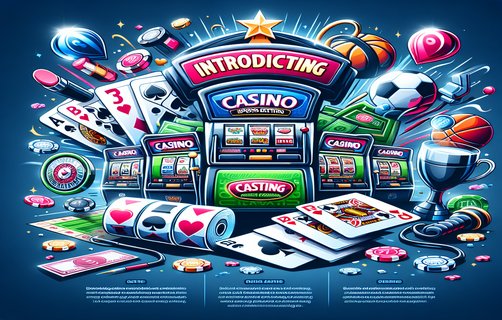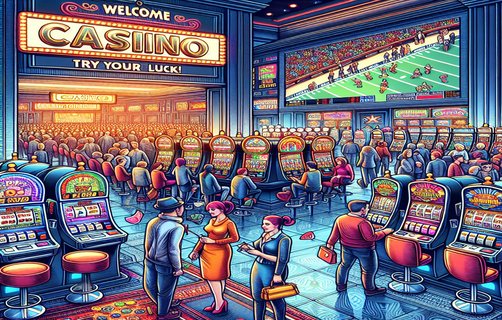The Dynamics of Luck and Strategy: Navigating Turn-Based Challenges in Games
किस्मत और रणनीति की गतिशीलता: खेलों में टर्न-बेस्ड चैलेंजेज़ को नेविगेट करना
When we think about dice games, the element of chance is often at the forefront of our minds. Yet, integrating strategy into luck-based game challenges enriches the gaming experience, creating intricate interactions on player boards. These interactions can elevate a simple game of dice into a thrilling battle of wits and timing.
In turn-based games involving dice, players take turns rolling, which introduces a natural rhythm. This slow pacing allows for strategic thinking between turns—an opportunity to devise plans based on current board states. Each player board often has unique attributes, enabling personalized strategies and differentiating gameplay. This customization enhances player engagement, as no two boards are identical.

Objective completion guidelines are crucial in shaping player behavior. Clear goals will not only focus the players’ efforts but also encourage competition. However, the nuances of achieving these objectives must balance with the fortuity brought by the dice. If players frequently roll high numbers, a well-structured game could risk becoming unbalanced, so careful consideration is needed to ensure that objectives feel achievable yet challenging.

Movable board sections add another layer of strategy. By changing the layout of the board during gameplay, developers can ensure that players remain adaptable. This fluidity demands that strategies evolve based on the changing environment, making the game dynamic and engaging. It prevents stagnation and encourages creative approaches to both offense and defense.
Levelling and balancing player progression are crucial components of game design. It is vital to avoid a scenario where certain players dominate due to their levels, as this diminishes the experience for others. Introducing systems that allow for gradual power balance, perhaps through scalable rewards tied to player performance, can help maintain competitive integrity, ensuring every game feels fresh and inviting.
Power cards create an exciting strategic element by allowing players to manipulate outcomes unpredictably. Players may draw cards to alter their rolls, shift the conditions of their player board, or even affect their opponents. This introduces a layer of risk and reward to each decision made during gameplay. The power of these cards can be tailored to fit the pacing of the game and to harmonize with the luck-driven aspects, allowing balance between fortunate rolls and strategic hand management.
Ultimately, the fusion of luck-based elements and structured strategy creates a rich tapestry of gameplay experiences that appeal to a wide range of players. Understanding this interplay can lead to innovative designs and engaging game mechanics that resonate profoundly within the community while keeping everyone coming back for the thrill of uncertainty and skill.
जब हम पासा खेलों के बारे में सोचते हैं, तो अक्सर भाग्य का तत्व हमारे मन में पहला होता है। हालाँकि, भाग्य-आधारित खेल चुनौतियों में रणनीति को एकीकृत करना खेल के अनुभव को समृद्ध करता है, खिलाड़ियों की बोर्ड पर जटिल अंतःक्रियाएं पैदा करता है। ये अंतःक्रियाएं पासे के साधारण खेल को चतुराई और समय के रोमांचक लड़ाई में बदल सकती हैं।
पासे के साथ संबंधित टर्न-आधारित खेलों में, खिलाड़ी बारी-बारी से पासा फेंकते हैं, जो एक स्वाभाविक लय प्रस्तुत करता है। यह धीमा रुख रणनीतिक सोच के लिए एक अवसर प्रदान करता है—एक योजना बनाने का मौका जो वर्तमान बोर्ड स्टेट पर आधारित हो। प्रत्येक खिलाड़ी बोर्ड के अनूठे गुण होते हैं, जो व्यक्तिगत रणनीतियों को सक्षम बनाते हैं और गेमप्ले को अलग करते हैं। इस अनुकूलन से खिलाड़ी की संलग्नता बढ़ती है, क्योंकि कोई दो बोर्ड समान नहीं होते।
उद्देश्य पूर्णता दिशानिर्देश खिलाड़ियों के व्यवहार को आकार देने में महत्वपूर्ण होते हैं। स्पष्ट लक्ष्य केवल खिलाड़ियों के प्रयासों को केंद्रित नहीं करेंगे बल्कि प्रतिस्पर्धा को भी बढ़ावा देंगे। हालाँकि, इन उद्देश्यों को प्राप्त करने की जटिलताओं को पासे द्वारा लाए गए भाग्य के साथ संतुलित किया जाना चाहिए। यदि खिलाड़ी लगातार उच्च संख्या फेंकते हैं, तो एक अच्छी तरह से संरचित खेल संतुलन खोने का जोखिम उठाता है, इसलिए यह सुनिश्चित करने के लिए सावधानीपूर्वक विचार की आवश्यकता है कि उद्देश्य संभावित और चुनौतीपूर्ण महसूस करें।
मूव होने वाले बोर्ड सेक्शंस रणनीति का एक और स्तर जोड़ते हैं। खेल के दौरान बोर्ड के लेआउट को बदलकर, डेवलपर्स यह सुनिश्चित कर सकते हैं कि खिलाड़ियों को अनुकूलनीय बने रहना चाहिए। यह तरलता रणनीतियों को विकसित करने की मांग करता है जो बदलते माहौल के आधार पर बनती हैं, खेल को गतिशील और आकर्षक बनाती हैं। यह ठहराव को रोकती है और हमलावर और रक्षात्मक दोनों दृष्टिकोणों के लिए रचनात्मक दृष्टिकोणों को प्रोत्साहित करती है।
खिलाड़ियों की उन्नति को संतुलित करना और स्तर का संतुलन कायम करना खेल डिजाइन के महत्वपूर्ण घटक हैं। यह महत्वपूर्ण है कि कुछ खिलाड़ी अपने स्तर के कारण प्रभुत्व में न रहें, क्योंकि यह दूसरों के लिए अनुभव को कम कर देता है। ऐसे सिस्टम का परिचय देना जो खिलाड़ी के प्रदर्शन से जुड़े क्रमिक पारितोषिक की अनुमति देता है, प्रतिस्पर्धात्मक अखंडता बनाए रखने में मदद कर सकता है, यह सुनिश्चित करते हुए कि हर खेल नया और आमंत्रित प्रतीत हो।
पावर कार्ड एक रोमांचक सामरिक तत्व बनाते हैं, जो खिलाड़ियों को अप्रत्याशित रूप से परिणामों में हेरफेर करने की अनुमति देते हैं। खिलाड़ी अपने रोल को बदलने, अपने खिलाड़ी बोर्ड की स्थितियों को बदलने, या यहां तक कि अपने विरोधियों को प्रभावित करने के लिए कार्ड खींच सकते हैं। यह खेल के दौरान लिए गए प्रत्येक निर्णय में जोखिम और पुरस्कार का एक स्तर पेश करता है। इन कार्डों की शक्ति को खेल के गति के अनुकूल बनाने और भाग्य-प्रेरित पहलुओं के साथ सामंजस्य स्थापित करने के लिए अनुकूलित किया जा सकता है, जिससे भाग्यशाली रोल और रणनीतिक हैंड प्रबंधन के बीच संतुलन निर्मित होता है।
आखिरकार, भाग्य-आधारित तत्वों और संरचित रणनीति का विलय एक समृद्ध खेल खेलने के अनुभवों का ताना-बाना बनाता है जो खिलाड़ियों की एक विस्तृत श्रृंखला में अपील करता है। इस परस्पर क्रिया को समझना अभिनव डिज़ाइन और खेल मैकेनिक्स की ओर ले जा सकता है जो समुदाय में गहराई से प्रतिध्वनित होते हैं, जबकि हर किसी को अनिश्चितता और कौशल के रोमांच के लिए वापस आने के लिए प्रेरित करते हैं।

comments
GamerGuru88
Such a well-rounded analysis! I love the balance between luck and strategy.
DiceMaster23
The idea of movable board sections is a game-changer. It adds so much complexity!
StrategySeeker
I'm particularly interested in how power cards can shift the game dynamics.
BoardGameNerd
Very insightful! Can't wait to apply these concepts to my next game night.
LuckAndSkill
Balancing player leveling sounds tough, but essential for a fair game.
TacticalTom
Great read! I appreciate the emphasis on strategic planning between turns.